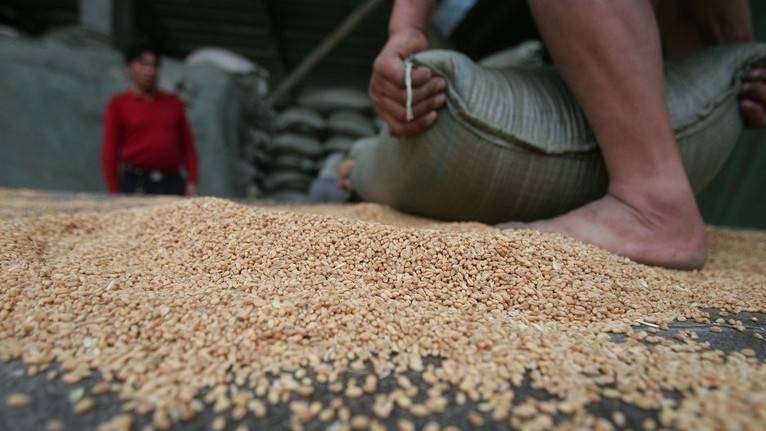
New Delhi, September 26: An estimated 36,000 tonnes of grain has gone bad at the various storage facilities of the state-run Food Corp of India (FCI) since 2008, enough to feed 80 million people at a per capita consumption of 440 grams, fresh data reveals.
Ironically, the maximum wastage is accounted for in Punjab, otherwise known as India's bread basket, where 19,290 tonnes have rotted during the period, as per the replies to an application filed under the Right to Information Act.
West Bengal is next with 4,545 tonnes, and Gujarat follows with 4,290 tonnes, according to information available on the application filed by activist Tajinder Pal Singh Bagga. But the state-run firm has no data on how much of the loss is due to lack of storage space.
The state-run agency said the damage was due to reasons such as pest attack, leakages, poor quality stocks, spillages during transportation, floods, human negligence and exposure to rain in case of unscientific storage due to lack of storage space.
"But there is no specific data available on foodgrains damaged due to the inadequacy of storage space," the reply said. Another application filed earlier by activist Dev Ashish Bhattacharya had revealed that between 1997 and 2007, some 183,000 tonnes of wheat, 633,000 tonnes of rice and 111,000 tonnes of maize were damaged at different FCI warehouses.
Minister of State for Food and Public Distribution K.V. Thomas had told parliament in a reply to a question in June that more than 6.6 million tonnes of wheat, meant for sale through state-run fair-price shops, was lying in the open.
The state-run corporation is the main grain procurement agency for the government. It stores the procured grain in the warehouses of Central Warehousing Corp, state warehousing corps and private 'godowns'.
Official data showed that the agency had a capacity for 63.82 million tonnes of covered storage as on April 1. This shows the increase in such capacity has been limited, since it was 50.4 million tonnes in 2005. Against this, grain production this year is expected to be 117.18 million tonnes.
"There is an acute shortage of storage space and government is deliberately not building more godowns," alleged Manas Ranjan of the Right to Food Campaign. "The government wants only private godowns to be built. This will dilute whole functioning of FCI."
There is proof of this as well. An official reply said out of 18.1 million tonnes of storage capacity approved for being built by the central, state and private agencies, just 2.9 million tonnes has been constructed - a mere 16 percent of approved space.
"Since 2008, all across the country, a storage capacity of 2.9 million tonnes has been created under the private entrepreneurship guarantee scheme and 45,000 thousand tonnes under Five Year Plan."





Comments
Add new comment